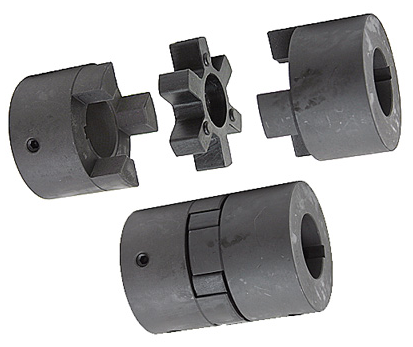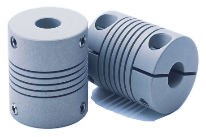Coupling Joint Shaft
Introduction to Coupling Joint Shaft
Coupling joint shafts play an indispensable role in mechanical systems, facilitating seamless power transmission and rotational motion between two shafts. They are critical components that ensure system efficiency and longevity.
Types of Coupling Joint Shafts
There exists a diverse array of coupling joint shafts, each designed to meet specific operational requirements and constraints. They include rigid, flexible, and fluid couplings, among others.
Applications of Coupling Joint Shafts
From automotive to industrial machinery, coupling joint shafts find applications in various sectors. Their ability to absorb misalignment and reduce wear makes them crucial in many engineering solutions.
Advantages of Coupling Joint Shafts
These components offer numerous benefits, such as enhanced torque capacity, vibration dampening, and adaptability to shaft misalignment. Their design minimizes maintenance needs and prolongs equipment life.
Materials Used in Coupling Joint Shafts
Common materials include steel, stainless steel, aluminum, and composite materials. The choice of material affects the coupling’s strength, weight, and resistance to environmental factors.
Design Considerations
When designing a coupling joint shaft, engineers must consider factors such as torque requirements, rotational speed, misalignment tolerance, and environmental conditions. These factors influence the coupling’s performance and reliability.
Installation and Maintenance
Proper installation is crucial for optimal performance of coupling joint shafts. Regular maintenance, including lubrication and alignment checks, can prevent premature failure and ensure long-term operation.
Innovations in Coupling Technology
Recent advancements include the development of smart couplings with integrated sensors for real-time monitoring. These innovations help predict failures and optimize maintenance schedules.
Flexible Coupling Joint Shafts
Flexible couplings accommodate misalignment and reduce transmitted vibrations, making them ideal for systems where precise alignment is challenging. They include types like elastomeric and jaw couplings.
Rigid Coupling Joint Shafts
Rigid couplings provide a solid connection between two shafts, ensuring no relative movement. They are suitable for applications requiring precise alignment and high torque transmission.
Fluid Coupling Joint Shafts
Fluid couplings use hydraulic fluid to transmit torque. They are commonly used in automotive and industrial applications where smooth power transfer and controlled acceleration are required.
Choosing the Right Coupling for Your Needs
Selecting the appropriate coupling involves evaluating the system’s operational parameters, including torque, speed, and misalignment. Consulting with experts can help in making an informed decision.
Common Issues and Troubleshooting
Common issues with coupling joint shafts include misalignment, excessive vibration, and wear. Regular inspections and adherence to maintenance guidelines can mitigate these problems.
Future Trends in Coupling Joint Shafts
The future of coupling joint shafts lies in the integration of advanced materials and smart technologies. These developments promise to enhance performance, reduce maintenance, and increase the lifespan of mechanical systems.
Conclusion
Coupling joint shafts are vital components in mechanical systems, ensuring efficient power transmission and operational stability. Understanding their types, applications, and maintenance is essential for optimizing system performance.

What are the three types of coupling?
The three primary types of coupling are rigid, flexible, and fluid. Each type has its own unique characteristics and is chosen based on the specific needs of the application.

What coupling is used to connect two shafts?
The choice of coupling to connect two shafts depends on various parameters and actual conditions:
- Torque Requirements: The amount of torque that needs to be transmitted influences the type of coupling. Higher torque applications may require rigid couplings, while lower torque applications might use flexible couplings.
- Misalignment Tolerance: If the shafts are not perfectly aligned, flexible couplings that can absorb misalignment, such as elastomeric or jaw couplings, are preferred.
- Operational Speed: The rotational speed of the shafts affects the choice of coupling. High-speed applications might need couplings designed to minimize vibration and balance the load.
- Environmental Conditions: Factors such as temperature, humidity, and exposure to chemicals can influence the material and type of coupling used. Stainless steel or composite materials might be selected for harsh environments.
- Maintenance and Accessibility: Ease of installation and maintenance requirements also play a role. Some couplings are designed for easy disassembly and reassembly, which is beneficial for maintenance.

What are the two general types of shaft couplings?
The two general types of shaft couplings are rigid and flexible. Rigid couplings are used when precise alignment and high torque transmission are needed, while flexible couplings are used to accommodate misalignment and reduce vibration.
HZPT, located in Hangzhou, Zhejiang Province, is a modern enterprise integrating R&D, learning, production, and foreign trade. We adhere to the core values of the company, using “integrity” as our business philosophy, and foster unity, progress, and innovation. We combine high-tech development, international trade, industrial investment, and domestic and foreign networks, focusing on the research and innovation of coupling products. Our business spans Asia, Europe, Africa, and North America, and we are moving towards the vision of becoming an internationally influential group. Our company specializes in producing drum couplings, spring pin couplings, serpentine spring couplings, universal couplings, star couplings, expansion couplings, diaphragm couplings, tire couplings, and other series of coupling products. We have a complete and scientific quality management system and our own technology development and testing department. We have CQC, ISO, and CE certificates. We can provide customers with excellent sales service and technical support. Serving hundreds of cooperative enterprises, adhering to the business philosophy of “people-oriented, customer first,” we cooperate sincerely with customers for mutual development.

We professionally produce and sell shaft couplings. To attract customers to cooperate with us, here are our advantages:
- High-Quality Products: Our couplings are manufactured using premium materials and state-of-the-art technology, ensuring durability and reliability.
- Innovative Solutions: We continually invest in research and development to bring innovative coupling solutions that meet the evolving needs of our customers.
- Comprehensive Service: From consultation to after-sales support, we provide comprehensive services to ensure customer satisfaction.
- Global Reach: With a presence in multiple continents, we have the capability to serve clients worldwide, ensuring timely delivery and support.
- Certifications and Quality Assurance: Our products are certified by CQC, ISO, and CE, reflecting our commitment to quality and standards.